-
Demographic Transitions and Ecological Tipping Points: Top Posts for October 2018
›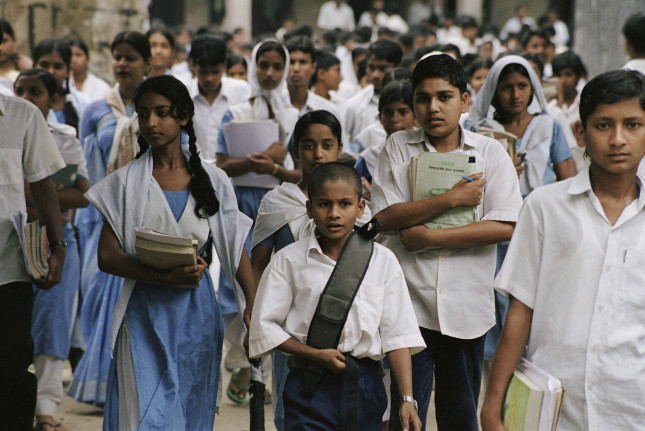
Once the same country and demographic twins, Bangladesh and Pakistan have diverged greatly in demographics since Bangladesh’s independence in 1971. Richard Cincotta and Elizabeth Leahy Madsen take a look at how despite the country’s vulnerability to extreme weather, sea-level rise, and Islamic extremism, Bangladesh’s bulge of working-age adults with relatively small proportions of seniors and young children offers potential for sustained development.
-
Sand, Water, and Conflict: Top 5 Posts of September 2018
›
Can the ocean and river ecosystems of the world survive the sand dredging needed to supply the cement for global construction? In September’s most popular post, Kimberly Yang explores the impact that widespread sand mining is having on China’s rivers and coastal waters, driven by China’s construction boom. The consequences are significant, but Chinese construction and real-estate companies are exploring ways to lessen the environmental impact of sand dredging.
-
Mothers of Invention: New Podcast from Mary Robinson and Maeve Higgins
›
Mary Robinson, the first female president of Ireland, and Maeve Higgins, Irish comic, have teamed up to talk climate change with pioneering women leaders from around the world. In the coming weeks, their new podcast, Mothers of Invention, will feature an African politician, an Indian scientist, a Native American activist, and many more.
-
Women’s Health, Population, Water, and Waste: The Top Posts for July 2018
›
Breast and cervical cancer, the leading forms of cancer among women in India, threaten not only women’s physical health but also their mental health, due to the stigma it brings to them and their families. In July’s top post, Yuval Cohen writes about Wilson Center Public Policy Fellow Cecilia Van Hollen’s research on the connections between agricultural chemicals, breastfeeding, gendered work, poverty, and spiritual beliefs in India, featured in her upcoming book, “The Curse of the Kali Yuga: Searching for Meaning and Care for Cancer in India.”
-
Parfait Eloundou-Enyegue: Moving from Laundry Lists to Bottom Lines
› “A lot of the advocacy of family planning has been built around establishing a long list of the many ways in which family planning can be relevant” to other development goals, says Parfait Eloundou-Enyegue of Cornell University in our latest Friday Podcast. While comprehensive accounts of the ways family planning access benefits communities, these “laundry lists” are not “clear, synthetic, or integrative,” he says.
“A lot of the advocacy of family planning has been built around establishing a long list of the many ways in which family planning can be relevant” to other development goals, says Parfait Eloundou-Enyegue of Cornell University in our latest Friday Podcast. While comprehensive accounts of the ways family planning access benefits communities, these “laundry lists” are not “clear, synthetic, or integrative,” he says. -
Jocelyn Ulrich: Enhancing Public Health to Unleash the Economic Power of Women
› Healthy Women, Healthy Economies is a global initiative that aims to unleash the “economic power of women by bringing governments, private sector, and other civil sector actors together to improve women’s health,” says Jocelyn Ulrich of EMD Serono (known as Merck KGaA, Darmstadt, Germany outside of the US and Canada) in our Friday Podcast. Providing for women’s health needs enables them to “join, thrive, and rise” in the economy, “bringing prosperity home to their families and communities.”
Healthy Women, Healthy Economies is a global initiative that aims to unleash the “economic power of women by bringing governments, private sector, and other civil sector actors together to improve women’s health,” says Jocelyn Ulrich of EMD Serono (known as Merck KGaA, Darmstadt, Germany outside of the US and Canada) in our Friday Podcast. Providing for women’s health needs enables them to “join, thrive, and rise” in the economy, “bringing prosperity home to their families and communities.” -
Franklin Moore: Fostering Local Innovation Through Community Organization
› Africare’s work has been built on a “strong belief that community mobilization and local capacity building and innovation are the cornerstones of successful development, and that, for us, includes resilience,” says Franklin Moore, Chief of Programs for Africare, in a podcast from a recent Wilson Center event. “Community engagement, capacity building, and looking at locally driven behavior and social change is what empowers communities.”
Africare’s work has been built on a “strong belief that community mobilization and local capacity building and innovation are the cornerstones of successful development, and that, for us, includes resilience,” says Franklin Moore, Chief of Programs for Africare, in a podcast from a recent Wilson Center event. “Community engagement, capacity building, and looking at locally driven behavior and social change is what empowers communities.” -
Geoengineering, Water, and Population: Top Posts of June 2018
›
With climate adaption and mitigation efforts failing to keep pace with climate-related risks, the need for a global regime on geoengineering will be increasingly pressing, write Elizabeth L. Chalecki and Lisa Ferrari in June’s top post. The norms of just war theory could provide a starting point for developing a code of conduct for geoengineering.
Showing posts by Benjamin Dills.


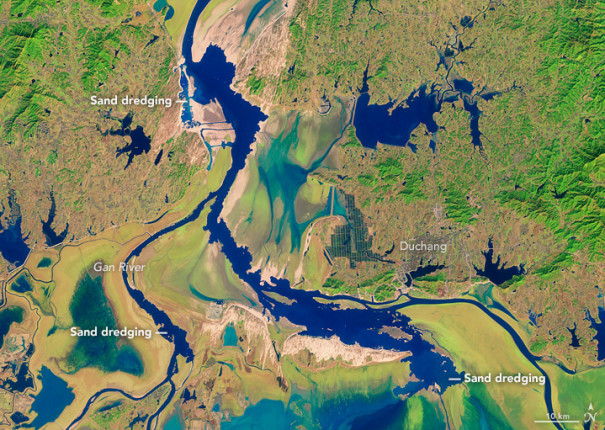

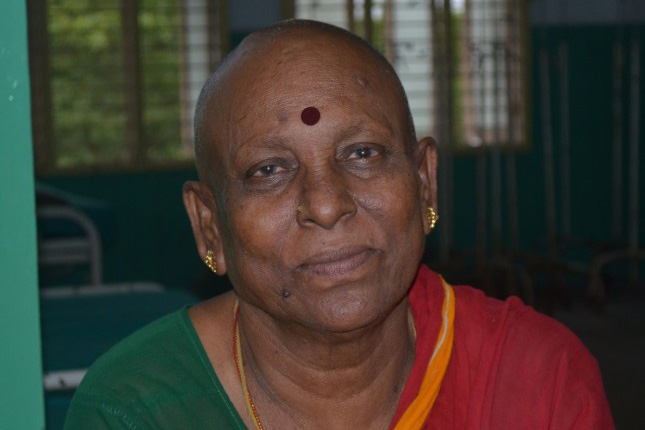
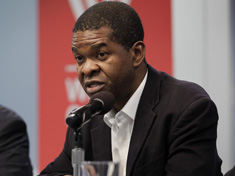 “A lot of the advocacy of family planning has been built around establishing a long list of the many ways in which family planning can be relevant” to other development goals, says Parfait Eloundou-Enyegue of Cornell University in our latest Friday Podcast. While comprehensive accounts of the ways family planning access benefits communities, these “laundry lists” are not “clear, synthetic, or integrative,” he says.
“A lot of the advocacy of family planning has been built around establishing a long list of the many ways in which family planning can be relevant” to other development goals, says Parfait Eloundou-Enyegue of Cornell University in our latest Friday Podcast. While comprehensive accounts of the ways family planning access benefits communities, these “laundry lists” are not “clear, synthetic, or integrative,” he says.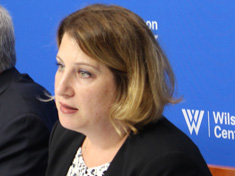 Healthy Women, Healthy Economies is a global initiative that aims to unleash the “economic power of women by bringing governments, private sector, and other civil sector actors together to improve women’s health,” says Jocelyn Ulrich of
Healthy Women, Healthy Economies is a global initiative that aims to unleash the “economic power of women by bringing governments, private sector, and other civil sector actors together to improve women’s health,” says Jocelyn Ulrich of 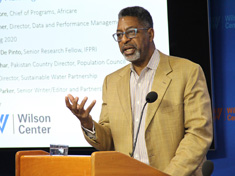 Africare’s work has been built on a “strong belief that community mobilization and local capacity building and innovation are the cornerstones of successful development, and that, for us, includes resilience,” says
Africare’s work has been built on a “strong belief that community mobilization and local capacity building and innovation are the cornerstones of successful development, and that, for us, includes resilience,” says 


